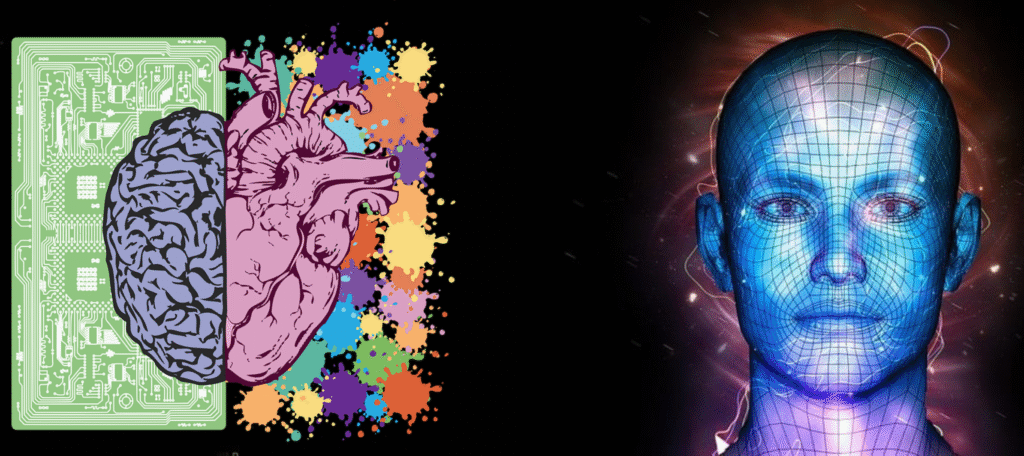There are many obstacles to preserving meaningful agency in the modern digital world. Our conscious decision-making processes can be overridden by sophisticated algorithms used by many of the platforms and services we depend on to grab and maintain our attention. These algorithms frequently use psychological tricks. As automated content curation becomes more prevalent, algorithms designed for engagement rather than our expressed preferences or well-being are increasingly dictating the material we consume.
The majority of consumers are unable to comprehend what information is being collected about them or how it is being used since data collection procedures have gotten so widespread and intricate. Terms of service agreements’ long, technical wording gives the impression of choice while making it practically hard for the typical user to give genuine permission.
Furthermore, entire categories of digital experiences are under the authority of firms whose main duty is to shareholders rather than customers due to the concentration of power among a small number of powerful technology companies. This leads to circumstances in which company interests may take precedence over user agency, especially when such interests clash with user autonomy or privacy.
The Promise of Enhanced Agency
Notwithstanding these obstacles, technology presents previously unheard-of chances to strengthen human agency. We have more options, more knowledge, and more ways to interact and create than ever before thanks to digital tools. The internet has made it possible for new kinds of artistic expression, democratized access to knowledge, and given voiceless people a platform.
Artificial intelligence assistants and other emerging technologies have the potential to function as real agents acting on behalf of users, filtering information, automating repetitive chores, and offering individualized support while protecting user privacy and preferences. By managing complexity and repetitive tasks, these technologies, when carefully planned, could strengthen human agency rather than weaken it, allowing people to concentrate on more important choices and imaginative pursuits.

Building Systems That Preserve Agency
Intentional design decisions that put user autonomy ahead of engagement metrics or data collecting are necessary to create digital systems that really support human agency. This entails putting in place significant privacy safeguards, giving consumers honest and transparent information about how systems operate, and making sure they maintain complete control over their online experiences.
Openness is essential.
In addition to knowing what information is being gathered, users should also be aware of how algorithms operate, why they see particular content, and their options. Finding methods to explain complicated procedures in understandable terms is preferable to overloading individuals with technical details.
Mechanisms for user control must be more than just aesthetically pleasing.
Systems should be designed with privacy and user agency as defaults, requiring opt-in rather than opt-out methods for data sharing and algorithmic manipulation, rather than creating the appearance of choice through intricate privacy settings that few people comprehend or use.
The Role of Digital Literacy
Investing in digital literacy education that goes beyond fundamental technological abilities is also necessary to preserve digital agency. To navigate information-rich environments, people must learn how digital systems operate, identify manipulative design patterns, and hone their critical thinking abilities.
Understanding data privacy, identifying algorithmic bias, comprehending the operation of attention-capture systems, and being aware of the tools and strategies available to preserve control over one’s digital experience should all be part of this education. We need holistic approaches to digital media literacy that recognize the particular difficulties of algorithmic systems, just as we teach kids to be critical consumers of conventional media.

Policy and Regulatory Considerations
To maintain digital agency in the face of strong economic and technological pressures, individual effort is insufficient. Important steps have been taken to safeguard user rights and mandate more open, user-friendly methods of handling data and algorithmic systems through regulatory frameworks such as the Digital Services Act and the General Data Protection Regulation (GDPR) of the European Union.
To successfully safeguard user agency and prevent strangling innovation, regulations must be carefully written. This necessitates that policymakers build frameworks that can change as technology advances and get a deep grasp of how digital systems function.
Looking Forward: The Future of Digital Agency
Our collaborative decisions about the creation and implementation of new technologies will probably determine the direction of digital agency in the future. We face both opportunities and hazards as artificial intelligence grows more complex and widespread. AI systems have the potential to be both potent instruments for boosting human agency and tools for hitherto unheard-of levels of control and manipulation.
The idea of algorithmic sovereignty, which refers to people’s and groups’ rights to control how algorithmic systems function in their environments, is becoming more and more popular. This covers both the communal right to influence the technology systems that impact entire communities as well as the individual right to privacy.
FAQS
What exactly is a digital agency?
Your capacity to make significant decisions and keep command of your digital encounters is known as digital agency. This entails choosing what data to disclose, being aware of how algorithms impact what you see online, managing your data privacy, and having real choices about how to use digital systems. In essence, it’s about preserving your independence and ability to make decisions in digital environments.
Why should I care about a digital agency?
Major facets of your life are increasingly impacted by digital systems, ranging from the news you consume and the goods you purchase to employment prospects and interpersonal relationships. Without digital agency, you become vulnerable to judgments made by algorithms and companies rather than making informed choices yourself. Your worldview, financial choices, and interpersonal connections can all be impacted by this.
How is digital agency different from regular privacy?
Digital agency is more expansive than privacy, which is concerned with limiting access to your personal data. It covers privacy as well as your capacity to comprehend and manage how digital systems affect your decisions, what options you have, and how algorithms mold your experiences. In the event where systems influence your choices without your knowledge, you may have privacy but still lack agency.

